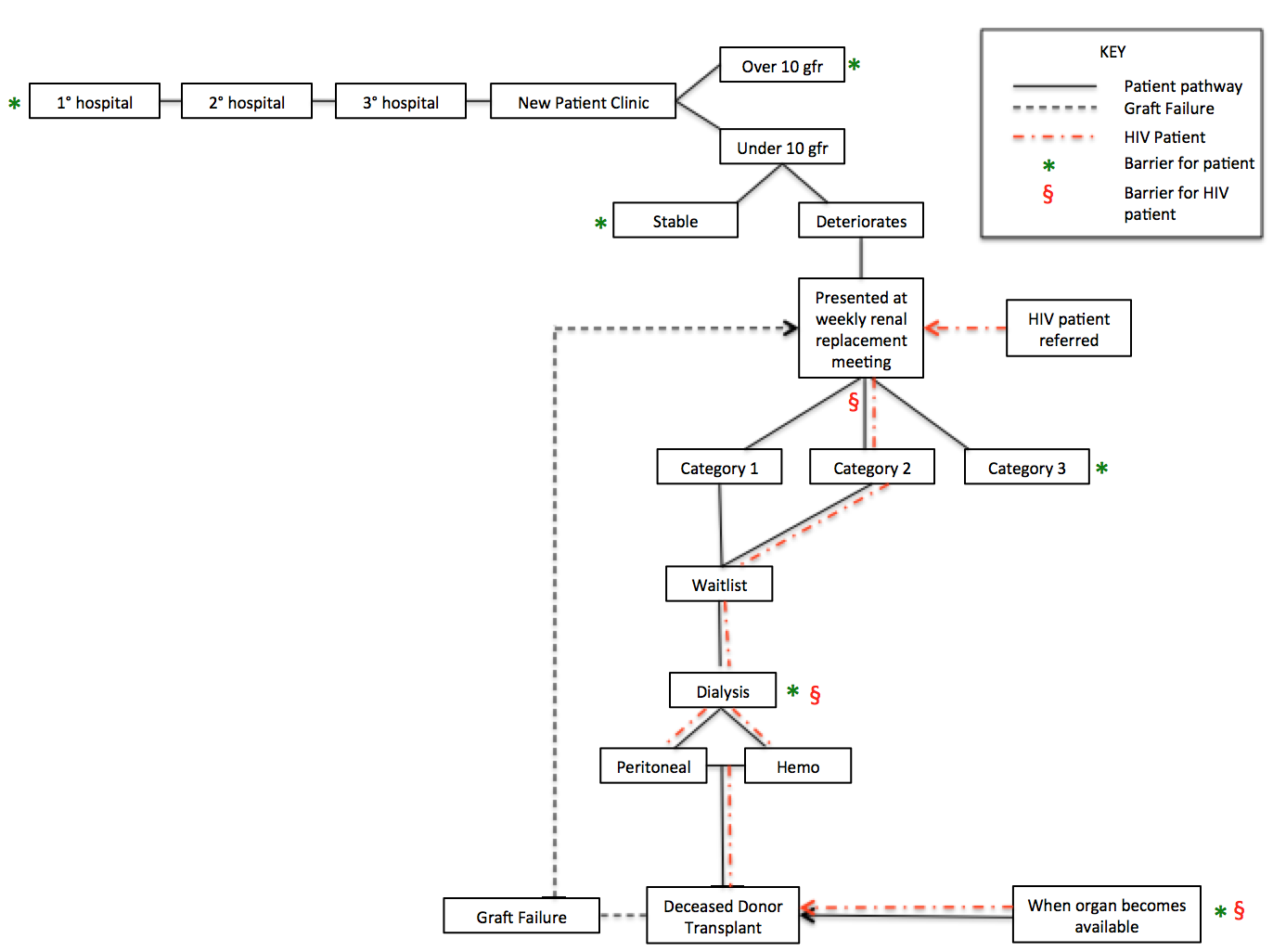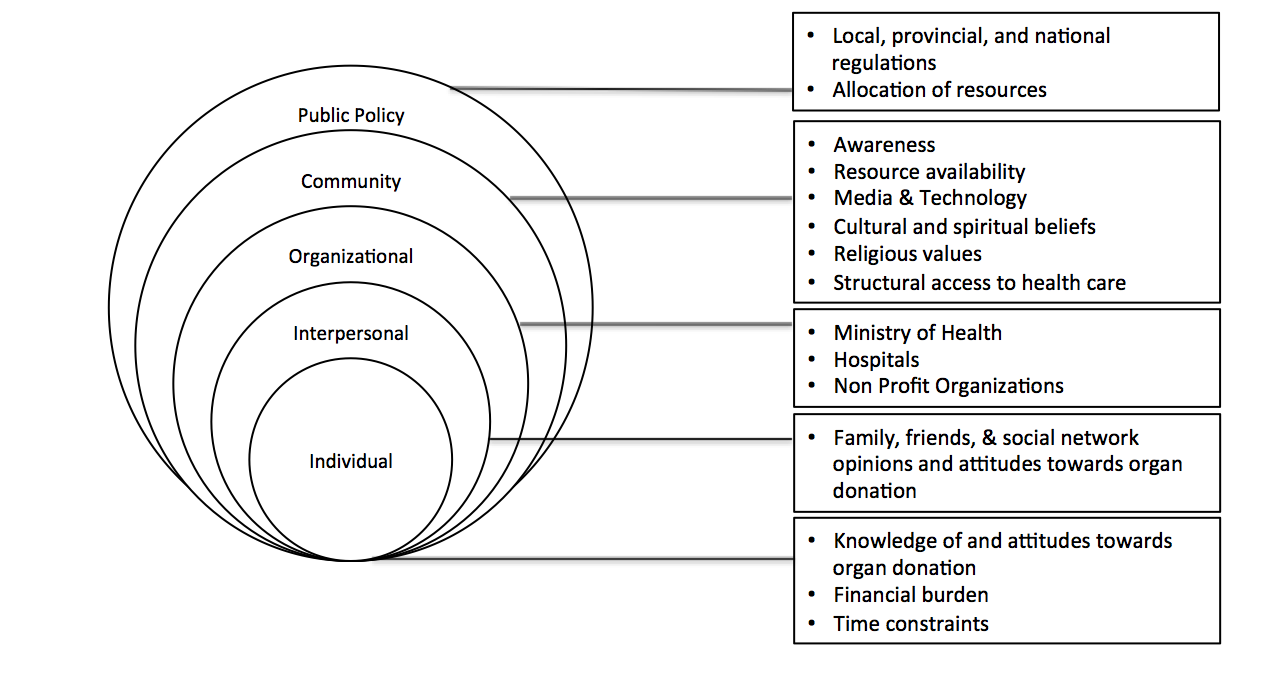A Systems Thinking Approach: Barriers to Implementation of an HIV-to-HIV positive transplant program in the State Sector of South Africa
Komal Kumar1, Maryn Reyneke1, Tinus Du Toit1, Dave Thompson1, Zunaid Barday1,2, Kathryn Manning1, Ike Okpechi2, Nicola Wearne2, Elmi Muller1,2.
1Division of Surgery, University of Cape Town, Cape Town, South Africa; 2Division of Nephrology, University of Cape Town, Cape Town, South Africa
Background: Since 2008 HIV-to-HIV deceased donor kidney transplants (DDKT) have been offered in South Africa. They have proven to be a successful treatment option for patients living with both HIV and ESRD.
Methods: Using systems thinking approach and a socio-ecological model framework we identified barriers for patients with (WH) and without HIV (WOH) throughout the state sector DDKT pathway in order to increase the full potential of HIV-to-HIV transplantation in South Africa.
Results: Barriers identified in the DDKT pathway are limiting patients WH and WOH from achieving transplantation. Common barriers identified that affect both patients WH and WHO include: limited access to dialysis and low donation consent rates.  In order to target these barriers, a socio-ecological model framework
In order to target these barriers, a socio-ecological model framework  was constructed to identify key stakeholders at various levels (individual, interpersonal, organizational, community, public policy) that can impact the current system.
was constructed to identify key stakeholders at various levels (individual, interpersonal, organizational, community, public policy) that can impact the current system.
Conclusions: Multilevel and systemic interventions will be necessary to realize the full potential of a HIV-to-HIV deceased donor kidney transplant program in South Africa.
